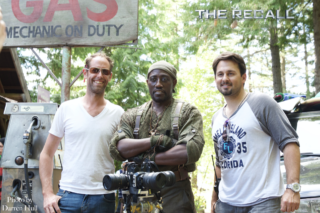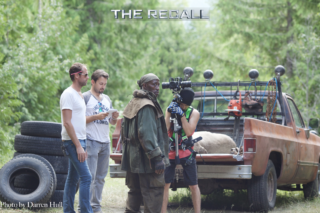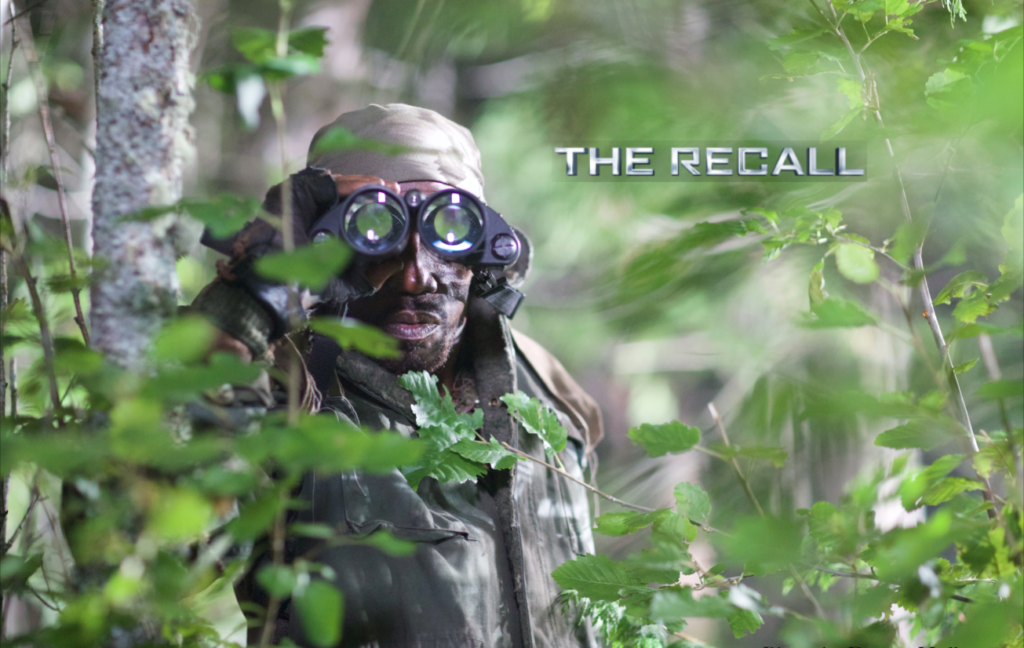One of the most decorated action movie actors of his generation is taking his talent from the big screen to virtual reality—all for the same project.
Wesley Snipes will star in The Recall VR Abduction, a 10-minute standalone short that exists in the same universe and cast as the upcoming Sci-Fi horror The Recall, a feature horror film that follows a group of friends who are abducted during a weekend cabin trip.
The guns-blazing Snipes, who saves the cast, is slated to virtually interact with the user through the eyes of another cast member played by R.J. Mitte (Walt Jr. of Breaking Bad) to pursue death-defying adventures in a world facing alien invasion. The transmedia experience places viewers in a story colored by extraterrestrial terror and lets users encounter Snipes’ mysterious character through the eyes of Mitte.
Directed by Mauro Borrelli, it is complemented with multiple endings different from the feature. Scheduled for release prior to the feature, it also serves as rich marketing collateral to promote the film in a dynamic medium, effectively changing the way theatergoers hear about movies and rewriting the way movie producers package content.
“The cool thing is that for theater actors, or thespians, this is a great format, because shooting in VR is similar to shooting a play, or performing a play,” Snipes said of his first foray into VR. “You don’t have the luxury of cuts, and short takes, and do overs. You have to be on your game, and since everything is in the shot, everyone else needs to be on their game at the same time.”
The Minds Eye Entertainment feature film is scheduled for release later this summer.
Kevin DeWalt, producer of The Recall and CEO of Minds Eye Entertainment, a Canadian independent production and distribution company, as well as Travis Cloyd, an executive producer in virtual reality, joined [a]listdaily for a joint interview to discuss their innovative approach to making and marketing movies.

Is this unique standalone VR experience a trend moviemakers will be increasingly adopting as a marketing tool moving forward?
Kevin: We are leading that trend. It’s exciting to be given this new technology at the forefront, and to be incorporating it into our film projects before other production companies realize and recognize what an asset it could be. There are many companies introducing new headsets, and the world of VR is becoming more and more accessible to the average viewer. It will be very useful in marketing and building awareness of The Recall. Also, it’s a great new channel for generating revenue.
How will you be marketing the 10-minute film? Are there any new social platforms you plan on testing?
Travis: We’re going to have the viral and behind-the-scenes 360 videos posted on platforms like Facebook and YouTube. We’re using these platforms to build momentum toward both the VR piece, and the film. We are balancing this 360-style promotion with standard marketing procedures, too. Anywhere we can get exposure, we’ll be advertising.
What was it like working with Wesley Snipes? As a whole, are mainstream actors embracing their craft in VR the same way? Or is it different?
Kevin: I don’t know how it could get any better. Wesley has been the best anyone could be. His thespian background helps him understand the complications that do exist in filming 360 and VR content, including less opportunities to cut the shot. He easily adapted to these challenges, and embraced them. Wesley is one of the first people to truly be embracing VR in terms of high profile actors, and we are excited to work with him as an actor and producer on the project.
Why is it imperative for brands to use 360-degree video and VR for their integrated marketing strategies?
Kevin: There are not a lot of films that are using 360, so that is a competitive advantage. We are able to go behind-the-scenes and show the average viewer what it’s like in a more immersive way. So it is a tremendously valuable item in the tool kit for marketing films.

What have you learned along the way about creating engaging VR experiences? What’s your special storytelling sauce?
Travis: There are more opportunities and physical spaces to distract, challenge and engage a viewer with the 360 perspective. In addition, immersive audio and carefully crafted music is key to elevating the storytelling experience. Finally, with the added space in the 360 perspective, you can tell multiple stories at once more easily. These three things—combined—are our secret sauce.
What needs to happen for VR to take the next step into the stratosphere?
Kevin: There needs to be better storytelling in VR content. Everything has been experiential, but nothing has been really story driven. We were excited to put an extra emphasis on story in our collaboration with Wesley Snipes for The Recall VR Abduction.
What is currently the biggest challenge for marketing VR?
Travis: Getting the average consumer to acclimate to the storytelling conventions of the platform and technology. The VR world is revolving and having to adapt with new cameras and headsets, and it’s just about getting used to watching the stories in a different way, and exciting viewers about the opportunity for a transmedia experience.
Follow Manouk Akopyan on Twitter @Manouk_Akopyan

